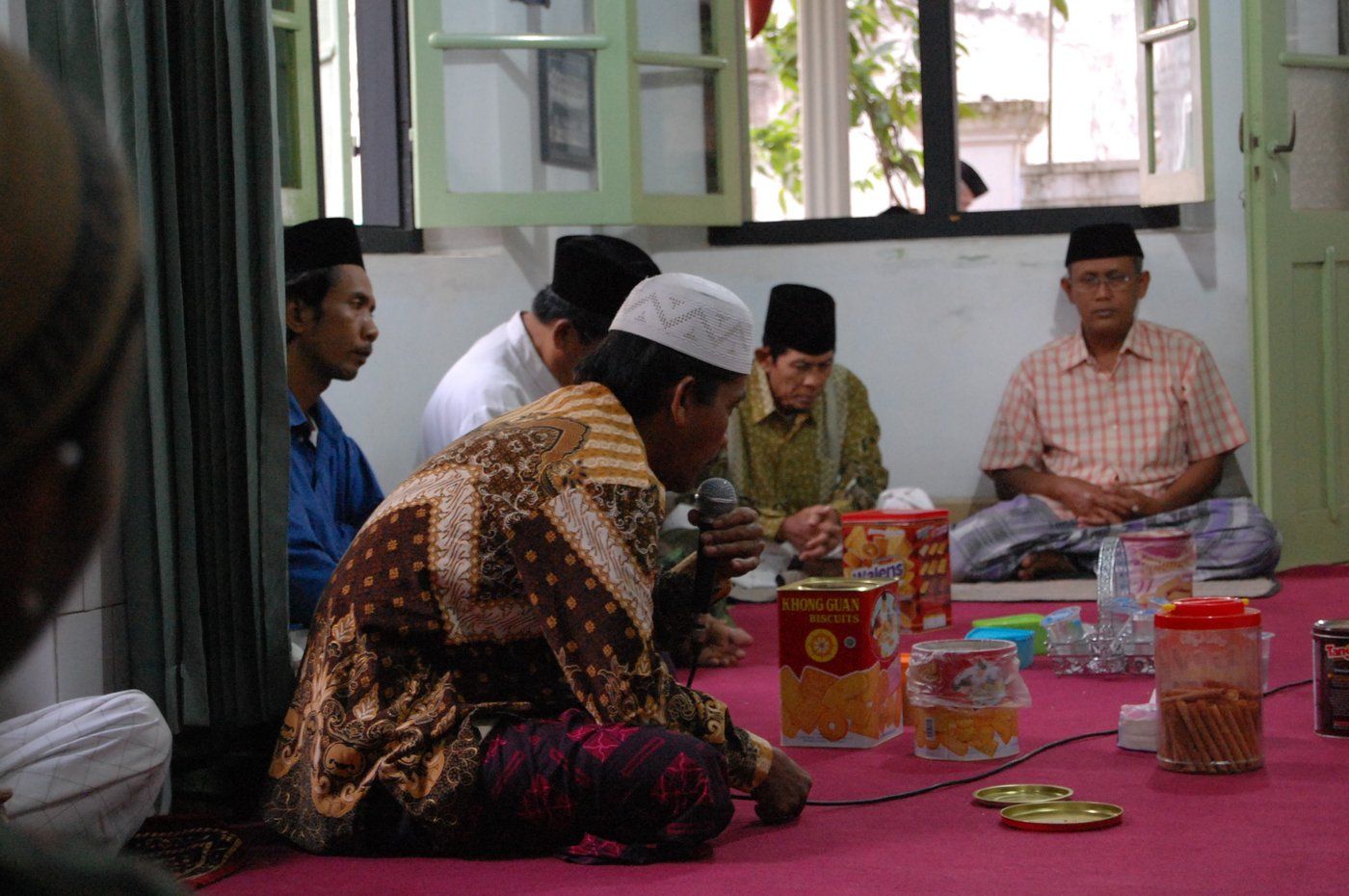For people in Java living with diabetes, spirituality and religion play a significant role in managing their condition. The highly spiritual Javanese tend to think everything that happens in the world — including illness — has a divine purpose. They believe that if they can endure their illness with patience, God will forgive them of their sins.
This attitude is a demonstration that the illness has raised a person’s ability to accept their situation as God's will, with the self-awareness to adhere to diabetic management guidelines, bringing enjoyment of their daily activities despite their disease. Social cohesion and social support are also important aspects of social determinants of health in managing diabetes.
Studies show that social and cultural aspects of people with diabetes have contributed to the development of the illness, as well as associated complications. For example, social ties are important among Javanese people, and respecting invitations to social gatherings can lead to diversion from prescribed dietary management plans.
If left untreated, diabetes can bring numerous complications. It is a leading cause of stroke, heart attack, kidney failure, blindness, and amputation of lower limbs.
Diabetes is on the increase globally. It affects 529 million people and is predicted to reach 1.3 billion people in 2050. Indonesia has shown a similar trend, with 19.5 million people with diabetes in 2021, and projected to reach 28.6 million in 2045.
Of the 34 provinces in Indonesia, Yogyakarta has one of the highest rates of people with diabetes.
Riskesdas, a household health survey conducted every five years, showed Yogyakarta had a 3.1 percent prevalence in 2018, higher than the national number of two percent. One reason for this may be that as Yogyakarta has one of the highest life expectancy rates in Indonesia, the proportion of elderly people increases, and with that comes the possibility of chronic illnesses, especially diabetes.
Despite its devastating effects, diabetes is considered preventable. A healthy diet, regular physical activity, stress management and avoiding smoking are among the preventive measures that reduce the possibility of developing diabetes mellitus.
As culture and religion are intertwined in daily life in Java, the way Javanese patients manage stress, for instance, is influenced by a blend of cultural and religious customs.
The influence of Islam, the main religion in the Javanese society, has a big influence on many aspects of daily life.
Submission is a concept that is shared between Islam (tawakkal) and Javanese culture (pasrah). Submission can take multiple forms, such as submission to authority (husbands and doctors) or to a higher power (surrender to God, or berserah).
In Indonesia and especially in Javanese culture, women's lives are traditionally devoted to the welfare of the family, so they are not in a position to assert autonomy or independence, because of cultural expectations and social standards. It is often believed that a woman's greatest virtue is her devotion to her husband and God.
The concept of submitting the illness to God (Allah) and trying to be patient has an important role in coping with diabetes, according to an ethnographic study conducted in 2022. Some people believe that their illness is a test from God, and this may prevent them from worrying too much about it. When they pass the test, they become elevated (naik derajat) – like students passing an exam, progressing to a higher grade.
The study validates earlier findings that suggested patients with diabetes may use religion and spirituality as coping strategies. Surrender offers individuals a useful tool to regain control by exhibiting their capacity to remain patient, kind and appreciative in the face of adversity. True acceptance (nrima), a Javanese virtue, is the act of accepting what God has given, without resistance. Some women with diabetes who practised this form of submission were found to be more likely to tolerate pain without resisting.
Submission also offers individuals a useful way to regain control by emphasizing their capacity to remain calm, gracious and appreciative in the face of adversity. Although, to some point, nrima is reached when a person’s ability to cope with daily social activities is still fulfilled. Indeed, this concept reflects how the idea of submission supports preventive diabetes management. It resonates with a theme of submission to fate as an active position, instead of passively accepting the condition as it is.
Nevertheless, different understanding still exists among various societies where nrima leads to a negative fatalism, in which God is the main actor who gives rise to the disease as well as its cure. This notion is a demonstration of the complex contribution of religion and spirituality in a society with a rich culture.
The increasing prevalence of diabetes, along with its physical, psychological and social effects, makes clear that the preventive approaches that have been taken are still inadequate to reduce its progress. A more comprehensive approach could be implemented, one that considers the social and cultural aspects of a society in developing more appropriate measures critical to the success of diabetes prevention.
(The author is an associate professor at Universitas Muhammadiyah Yogyakarta, Yogyakarta, Indonesia. This article was originally published under Creative Commons by 360info)

